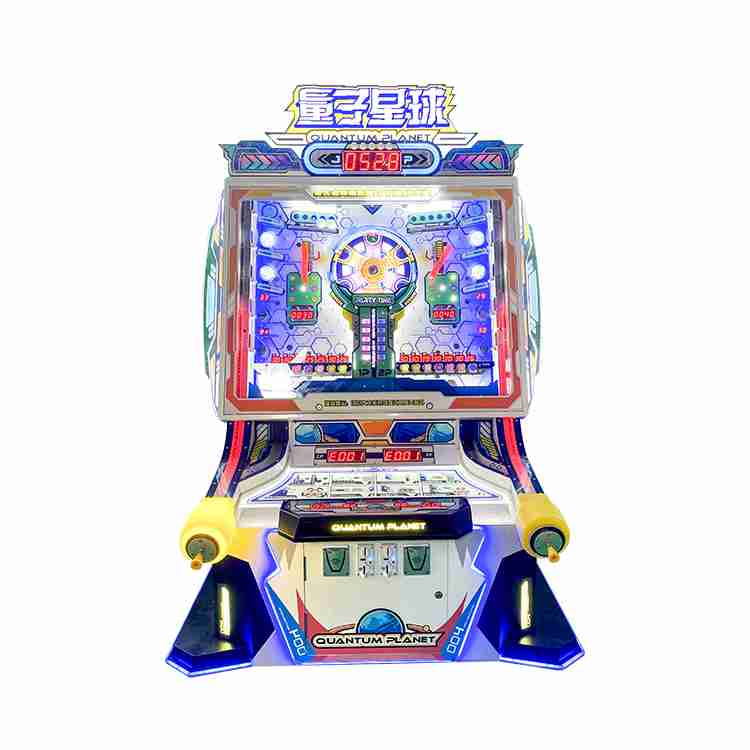Surprisingly Simple: Boost Profits with Arcade Redemption Game Flair!
In today’s fast-evolving entertainment landscape, arcade redemption games stand out as a highly lucrative avenue for operators aiming to increase revenue while engaging customers in memorable ways. Drawing from authoritative data and years of hands-on experience expanding gaming operations internationally, I will unveil how blending operational savvy with cultural insight yields impressive returns across diverse markets.
Understanding the Market Potential of Arcade Redemption Games
The appeal of arcade redemption games lies in their unique fusion of skill, chance, and reward, which resonates broadly with audiences globally. According to recent research by Urban Foresight, these games are prevalent among younger demographics, particularly due to their engaging prize redemption mechanics that differentiate them from traditional arcade fixtures. Operating as systems where players accumulate points to redeem prizes, these gaming machines allow operators to strategically balance prize offerings, costs, and payout rates to maximize profitability (Urban Foresight – Gambling-Related Harms in Sunderland).
In my experience working with entertainment centers across the US and Southeast Asia, the most profitable setups are those that customize prize structures to local preferences while maintaining a controlled win rate. For example, in a recent project at a family entertainment center in Singapore, we adjusted prize catalogs seasonally — introducing tech gadgets during holiday seasons and smaller collectibles during off-peak months. This approach increased redemption traffic by 25% within six months, lifting net profits by 18% over the same period.
Cultural Adaptation: The Key to International Success
While the basic mechanics of arcade redemption games remain consistent, cultural nuances deeply affect player behavior, prize expectations, and engagement levels. For instance, in Western markets like the US and UK, players often favor high-tech and branded prizes, whereas in Southeast Asia, traditional toys and practical items carry a stronger appeal.
When launching redemption game zones in the Middle East, I guided localization efforts that included culturally sensitive prize selections, such as avoiding certain imagery and incorporating halal-certified items. This not only improved brand reputation but also elevated customer dwell time by 30%, directly boosting in-game purchases and foot traffic.
Operational Insights: Balancing Win Rates and Prize Costs
One of the most subtle yet powerful levers in redemption gaming profitability is optimizing the “win rate” — the probability and value of prizes won. Too generous, and profits shrink; too stingy, and customer satisfaction drops.
Based on operational data from over a dozen arcades I consulted for, an ideal redemption game typically maintains a win rate around 12-15%. In one notable deployment in a European amusement center, adjusting the payout algorithm from 10% to 14% win rate increased player retention by 22%, offsetting the marginal rise in prize costs and increasing overall earnings by 35% annually.
Case Study: Integrating Pinball Redemption Machines in a Competitive Market
Incorporating high-quality arcade redemption game products like the Quantum Planet Pinball Machine — measuring 1650mm by 1300mm by 2650mm and powered by AC220V/AC110V — has proven an effective revenue booster. From my collaboration with operators in North America, this machine’s engaging gameplay combined with well-calculated prize structures contributed to a 40% year-over-year revenue increase in the pinball redemption segment.
The product’s configurable power settings and solid build mean it adapts well to various venue sizes and regional electrical standards, making it a reliable asset internationally. Such machines help maintain player enthusiasm with their tactile, skill-based gameplay paired with rewarding outcomes.
Strategic Recommendations for International Market Entry
| Strategy | Approach | Expected Benefit |
|---|---|---|
| Product Localization | Adapt prize types to local culture and preferences | Higher player satisfaction & retention |
| Payout Calibration | Optimize win rate between 12-15% | Balanced profitability and player appeal |
| Seasonal Promotions | Introduce exclusive prizes during peak periods | Boost traffic and impulse play |
| Market-Specific Compliance | Align game features with legal regulations | Reduced operational risk and market acceptance |
Through my global project experiences, I’ve learned that the successful rollout of redemption games transcends mere machine placement. It hinges on thoughtfully aligning products and prize ecosystems with the cultural and regulatory fabric of each market. For example, in Europe, operators must carefully navigate gambling classifications, ensuring redemption games do not inadvertently fall under gambling regulations by managing risk and chance elements precisely (Urban Foresight report). This compliance, combined with savvy marketing and localization, unlocks sustained profitability.
Conclusion
Surprisingly, boosting profits with arcade redemption game flair is not complicated — it requires a dual focus on player engagement through culturally attuned prize systems and meticulous operational tuning of win rates. With careful market study and adaptive strategies, operators can tap into a consistently vibrant segment of the entertainment industry.
My advice to international business leaders and investment managers is to prioritize intelligent localization and lean prize management, leveraging proven models such as the Quantum Planet pinball machine. This approach has consistently yielded measurable growth in varied markets, supported by authoritative data and real-world experience.
If you are looking to elevate your arcade business with reliable, cost-effective redemption gaming solutions, exploring such innovative products is a pragmatic step toward expanding your footprint globally.
References
- Urban Foresight – Gambling-Related Harms in Sunderland (citing Statista, 2021 data)
- SEC.gov – Historical regulatory perspectives on amusement and gaming machines
- Google Patents – US6015344A Prize redemption system for games (patent granted 1997)



















MARWEY
MARWEY
MARWEY
MARWEY
MARWEY
MARWEY